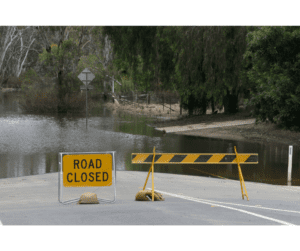In Oakland County, Michigan, the serene landscapes and proximity to water bodies like Lake St. Clair and the Detroit River come with a trade-off: the looming threat of flooding. As residents brace themselves against the uncertainties of extreme weather patterns, understanding flood insurance in Oakland County MI becomes not just a precautionary measure but a necessity for safeguarding homes and livelihoods.
 The Importance of Flood Insurance in Oakland County MI
The Importance of Flood Insurance in Oakland County MI
Oakland County’s geographic layout, with its blend of urban and suburban areas interwoven with rivers, lakes, and wetlands, makes it particularly susceptible to flooding. From torrential downpours to rapid snowmelt, the county faces various flood triggers. As climate change exacerbates these risks, the need for comprehensive flood insurance in Oakland County MI coverage becomes increasingly evident.
Deciphering Flood Insurance Coverage
Flood insurance is a specialized policy designed to cover damages specifically resulting from flooding. Unlike standard homeowners’ insurance, flood insurance is a separate entity, crucial for filling the gaps left by traditional coverage. It’s important to grasp that without flood insurance, many homeowners and renters may find themselves footing hefty repair bills in the event of flood-related damages.
Typically, flood insurance in Oakland County MI policies encompass two primary categories: structural coverage and content coverage. Structural coverage safeguards the physical integrity of the property, including the building, foundation, electrical and plumbing systems, and essential appliances. Content coverage extends protection to personal belongings housed within the property, such as furniture, electronics, clothing, and valuables.
Exploring Flood Insurance Options
While the National Flood Insurance Program (NFIP), overseen by FEMA, remains a prominent provider of flood insurance in Oakland County MI, residents also have the option of private flood insurance. The NFIP offers coverage to properties in participating communities, providing a safety net for homeowners, renters, and businesses alike. However, private flood insurance presents an alternative avenue, offering customizable coverage options tailored to individual needs and preferences.
Understanding the NFIP and Private Flood Insurance
The NFIP offers standardized flood insurance policies, with premiums calculated based on factors such as property location, flood risk, and coverage amount. Meanwhile, private flood insurance introduces flexibility, enabling policyholders to customize coverage according to their specific requirements. This flexibility often translates into more competitive pricing and enhanced coverage options, appealing to homeowners seeking comprehensive protection against flood risks.
Assessing Flood Risk and Cost Considerations
Before securing flood insurance, it’s crucial to assess the property’s flood risk. FEMA’s Flood Map Service Center provides Flood Insurance Rate Maps (FIRMs), delineating high-risk flood zones and aiding in risk evaluation. Additionally, understanding the cost implications of flood insurance is paramount. Premiums vary based on factors such as property location, elevation, flood risk, and coverage extent. While properties in high-risk flood zones may incur higher premiums, those in moderate-to-low risk areas may still benefit from affordable coverage options.
Community Involvement and Floodplain Management
Community engagement plays a pivotal role in mitigating flood risks. Local governments implement comprehensive floodplain management strategies encompassing land use planning, floodplain mapping, stormwater management, and infrastructure enhancements. Residents are encouraged to actively participate in community initiatives aimed at reducing flood vulnerability and enhancing resilience.
Conclusion: Securing Peace of Mind
As Oakland County residents navigate the uncertainties of climate change and extreme weather events, the importance of flood insurance in Oakland County MI cannot be overstated. Whether through the NFIP or private insurers, securing adequate coverage is essential for protecting homes, belongings, and financial security against flood-related risks. By understanding available coverage options, evaluating flood risk, and engaging with community floodplain management efforts, residents can take proactive steps towards safeguarding their properties and peace of mind against the unpredictable forces of nature. Don’t wait until disaster strikes – prioritize flood insurance today.



